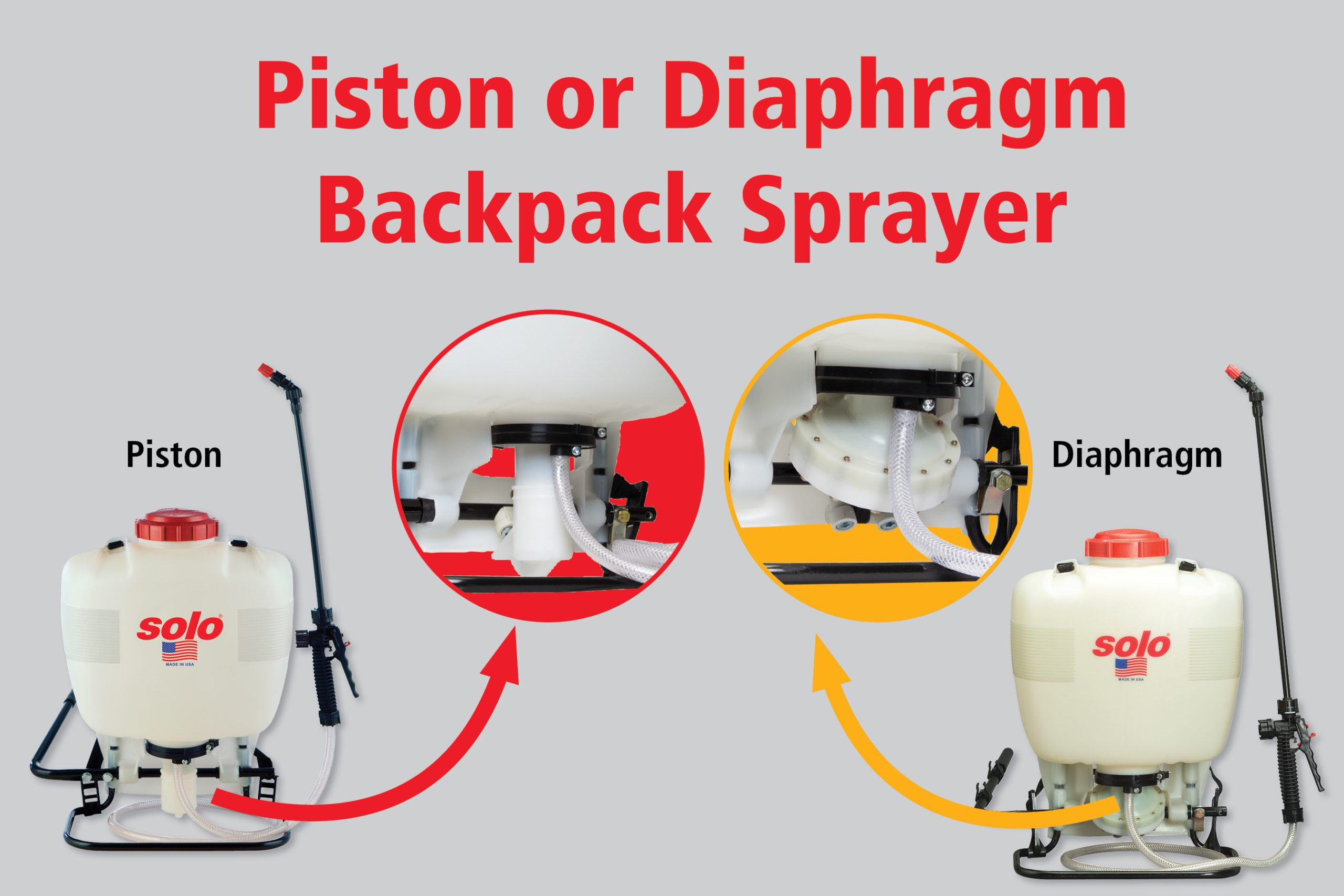
One of the most common questions we get is the difference between a piston pump and a diaphragm pump backpack sprayer. Choosing the sprayer with the correct pump is critical for sprayer longevity and depends on the type of chemical formulation you plan to use inside the sprayer.
Before we explore the question of which sprayer to pick, let’s establish the difference between piston pump and diaphragm backpack sprayers.
Piston Pump
- Piston pumps have a cylinder housing with a piston that moves up and down when pumping.
- Most piston models can reach up to 90 psi.
- Higher psi delivers a smaller droplet size and can provide further reach.
- Use with low abrasive, low viscosity spray liquids such as herbicides and insecticides.
- Easy to repair.
- Not for use with wettable powders, abrasive or bleach solutions which can cause premature wear or failure of the pump.
Diaphragm Pump
Diaphragm pumps have a flat diaphragm held together with screws inside the housing.
- Diaphragm pumps can reach up to 60 psi.
- Can be used with wettable powders, abrasive or bleach solutions.
- Designed with the ability to pass abrasive particles without damage to the pump assembly.
- Repairable, however, a bit more time-consuming than a piston model.
How to Decide
Now that you understand the differences between the two pump types. How do you decide which sprayer is best for you? The most critical factor to consider is the formulation. Using wettable powders or bleach solutions in a piston pump backpack sprayer will cause damage to the pump over time and cause premature equipment failure.
Diaphragm pump sprayers are compatible with the same liquid formulations as piston pump sprayers, in addition to bleach solutions and wettable powders. The most significant benefit you will gain from a diaphragm pump backpack sprayer is if you use bleach or wettable powders regularly. Piston pump backpack sprayers have two advantages over diaphragm pumps:
1) Higher psi, which produces a finer mist.
2) Piston pumps are easier to maintain than a diaphragm pump.
Ask yourself two questions?
Piston and diaphragm pump backpack sprayers are equal in quality and share many features. But if you’re still unsure which sprayer to select, ask yourself the following questions:
1) Am I using wettable powders, unfiltered, sedimented water, or bleach solutions now or in the future? If you answered yes, consider a Solo sprayer with a diaphragm pump.
2) Am I using liquid herbicides or fertilizers primarily? If you answered yes, consider a Solo sprayer with a piston pump.
